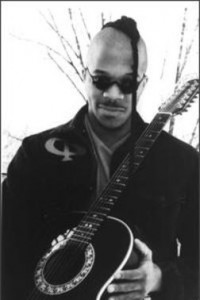 Fads are tricky little buggers. At first, you don’t think they’re fads: you think they’re the Next Big Thing. Such was the case around 1992 with socially conscious hip-hop. As gangsta rap was the dominant genre, and terrifying to squares in a way unseen since Elvis Presley wiggled on television, along came mellower rap groups talking about inner reflection and cultural issues. Not only did white people over the age of 45 think they were cool (and thought they themselves were cool for liking the rap music), but the musical accompaniment was far more interesting and palatable than just beats and “Funky Drummer” samples: these kind of groups used real instruments, even acoustic guitars. It really was something pretty damn new and original and exciting. Arrested Development were the biggest act of this almost-genre-but-really-fad, winning the Grammy for Best New Artist and scoring three top 10 hits off of its debut album 3 Years, 4 Months, and 5 Days in the Life Of…. De La Soul got a boost from this, as did Us3, P.M. Dawn, Digable Planets, and others.
Fads are tricky little buggers. At first, you don’t think they’re fads: you think they’re the Next Big Thing. Such was the case around 1992 with socially conscious hip-hop. As gangsta rap was the dominant genre, and terrifying to squares in a way unseen since Elvis Presley wiggled on television, along came mellower rap groups talking about inner reflection and cultural issues. Not only did white people over the age of 45 think they were cool (and thought they themselves were cool for liking the rap music), but the musical accompaniment was far more interesting and palatable than just beats and “Funky Drummer” samples: these kind of groups used real instruments, even acoustic guitars. It really was something pretty damn new and original and exciting. Arrested Development were the biggest act of this almost-genre-but-really-fad, winning the Grammy for Best New Artist and scoring three top 10 hits off of its debut album 3 Years, 4 Months, and 5 Days in the Life Of…. De La Soul got a boost from this, as did Us3, P.M. Dawn, Digable Planets, and others.
Somehow left off the socially conscious gravy train: Me Phi Me. On “Black Sunshine,” he rapped about homelessness, and he backed himself up with an acoustic guitar! How did we not fall all over ourselves to get to Hastings to buy the cassingle of this immediately?
Other singles came and went from Me Phi Me, such as “Pu’ Sho Hands 2Getha,” and “Sad New Day,” which actually reached #83 on the pop chart. Ben Stiller specifically requested a Me Phi Me song for the iconic Reality Bites soundtrack in 1994, but “Revival” was one of the few songs from that movie that didn’t become a hit. By the mid-’90s, Americans wanted more Lisa Loeb, and fewer rap songs about hobos.
[kml_flashembed movie="http://www.youtube.com/v/IQArCQbQsKQ" width="600" height="344" allowfullscreen="true" fvars="fs=1" /]





Comments